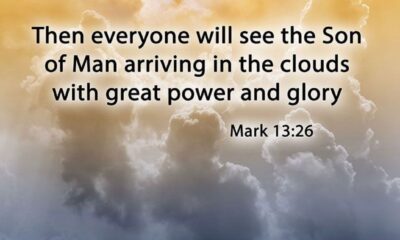World Mission Sunday
Today is World Mission Sunday. A day set aside to remind of Christ’s mandate; the great commission, to all baptised to “go out into the whole world and proclaim the good news. Mark 16:15. This Sunday being the 30th Sunday in Ordinary time was officially instituted by Pope Pius XI in 1926 as World Mission Sunday to remind us how we need to pray and support the missions everywhere.
The mission of Christ must spread: if we cannot go on mission, we should contribute to the progress of Christ’s mission.
It is therefore, a gracious moment for all of us to express solidarity with our brothers and sisters in Christ living on the margins in situations of poverty, violence, oppression and intimidation.
The theme for this year’s World mission Sunday is titled: “For we cannot but speak about what we have seen and heard” (Acts 4:20). Pope Francis tells us that,
“Once we experience the power of God’s love, we cannot help but proclaim and share what we have seen and heard. Jesus’ relationship with His disciples and His humanity shows us the extent to which God loves our humanity and makes His own our joys and sufferings, our hopes and our concerns.”
Thus, the Mission is of the Lord and we are to participate in it just like the apostles did. Not to keep it for ourselves alone but to spread it wherever we go. You cannot give what you do not have but if you have then share. This also reminds us that those who have heard the good news must constantly be re-evangelised so as to reminds themselves of the gift of God’s love that has been bestowed and the urgency of echoing the message of peace and joy in the gospel of salvation.
As far as we know, the Middle East, and especially the discussions between Israel and the Palestinian People, are rarely out of the news. With the establishment of the State of Israel after the Second World War, many Jews returned to their historic land after nineteen centuries of living scattered around the world. This experience was nothing new in their history. The People of Israel found themselves exiled and enslaved in Egypt under Pharaoh and were led back to the Promised Land by Moses.
In the Old Testament readings from Prophets Isaiah and Jeremiah, God speaks to the Jews who are once again in exile, this time in Babylon in the sixth century BC. Like sentinels, the prophets proclaimed Israel’s return back to the promised land. In the book of prophet Jeremiah, the prophet sees a procession returning to Israel: “the blind and the lame, women with child, women in labour, a great company returning here… I will guide them to streams of water, by a smooth path where they will not stumble.”
The return from exile to Israel is a moment of huge importance for the Jewish People because only in the Promised Land do they feel truly at home. Prayers can be said by the rivers of Babylon, but their Temple can only be restored in Jerusalem. The offering of Sacrifice and the High Priesthood can only operate on the soil of the land given by God to His People.
So the People of Israel understood the feeling of exile, the experience of alienation – a sense of not belonging where you are, of wanting to be back home. In many places in the Old Testament, the Jews are urged to be sensitive to “the stranger in their midst” – to be kind to foreigners. Why? Because they, as a People, knew what it felt like to be living as strangers in a foreign land.
Some of us can perhaps identify with this, at least in part. If you have worked away from home as a missionary or by profession, in a different part of the country or abroad, however happy you were, you may have felt this sense of alienation, have experienced a deep-seated longing to be back home. Those who have spent years in political or religious exile know it all too well.
What does all this have to say to us Christians? Here we have to make a huge leap and be ready to change our whole way of thinking. In Christianity, geography is relatively unimportant. “Our home is in heaven,” as Saint Paul teaches us. We have our own home town or country. We have our holy places, touched by God in some special way – Rome, Jerusalem, Lourdes, Fatima, etc. – and we make our pilgrimages to these places to experience a new closeness to God. We may love our own church and feel at home praying here before its tabernacle or gathered at its altar or making our devotions before its images and shrines. But the reality is that we belong with the Lord and our true home is in heaven.
The leap we have to make in our minds is to understand that our homes, the place where we live, our home country are actually only places we are passing through on our way to heaven. The home-making instinct in humans means that most of us spend a lot of time and money on making our earthly homes comfortable and as beautiful as possible. “Changing Rooms”, DIY stores, “The World of Interiors” and garden centres – they all reinforce the idea of creating our own little heaven on earth. But our true home, and our only lasting happiness, is to be found with God.
The early Christian Church thought long and hard about how to reinterpret the old Jewish ideas of the Temple and Priesthood. These were tied to a particular place and land; Christianity is universal. The old system looked back to the past; Christianity looked to the future in this world and the next. So Christ, the High Priest, is universal.
His priesthood, exercised within the Church by all the Baptised in one way, and by those ordained to the Ministerial Priesthood in a particular additional way, is exercised in every continent and in every generation. The forgiveness of sins in Baptism and Absolution, the celebration of Mass, are all preparations for the ultimate goal, which is eternal life with God.
One of the texts for the celebration of the Dedication of a Church reminds us that “this is the house of God and gate of heaven.” Most of us have a good grasp of the idea of God’s house, but I wonder how many of us think of the Church and the Sacraments as the gate of heaven? Do we think of the spread of the missions? Do we think beyond our comfort zones of a well established and developed Church building as against those who are trying to gather as a Church but lacks the possibility as a result of certain limitations? How many people have we prayed for so that the floodgates of heaven can be opened to them as well?
As we celebrate Mass today in this holy place, and experience the joy of closeness to Our Lord and perhaps a sense of being at home with Him, let us never forget that He calls us to follow Him, to spread the gospel, to be the living letters of the good news by our good conducts and at the end to be with Him in heaven where he reigns in glory. We must not get stuck in our beautiful earthly houses, nor in this Church, but remember that we stand here at the gate of heaven, through which we are called to pass to others about our true home beyond. Amen.
Be a living witness of the Gospel of Christ…
Continue the Mission of Christ in history:
PRAY. GIVE. GO.































